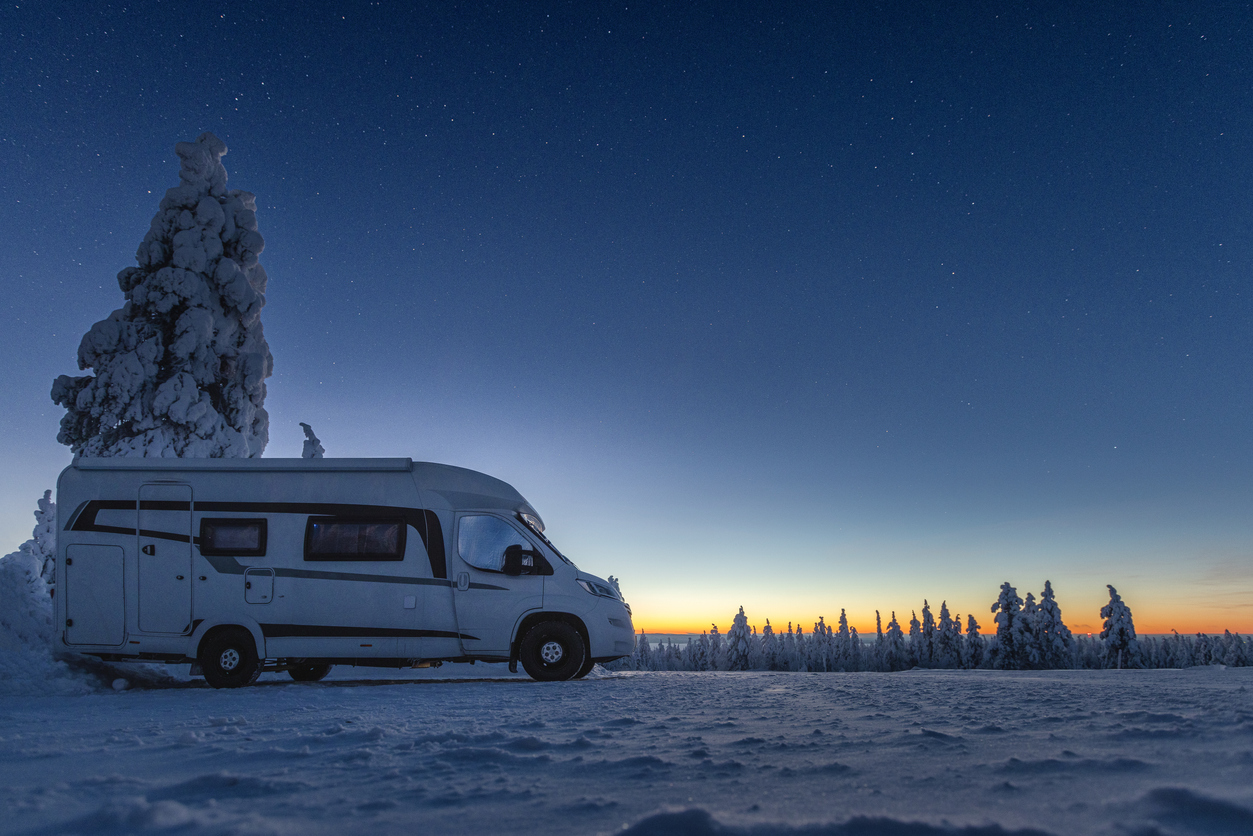
Winter RV camping can allow you to see the incredible sights of winter, but it also brings unique challenges. Dealing with frozen pipes, power outages, and other winter camping issues can be stressful, making it crucial to plan ahead before hitting the road. Along with recreational vehicles insurance, the following tips can help safeguard you and your ride against challenging scenarios.
1. Prepare Essential Winter RV Camping Gear
A crucial aspect of winter RV camping is investing in the right gear to ensure comfort and safety. Start by insulating your RV with thermal curtains for windows and draft stoppers for doors. In addition to insulated hoses and water lines, consider packing layers of warm clothing, thermal socks, and cozy blankets for those inside. Portable space heaters and heated blankets can add extra warmth during chilly nights.
Remember the importance of clothing for outdoor activities. Bring waterproof and insulated boots, gloves, and hats for any outdoor excursions during your winter camping trip. Ensuring everyone stays warm and dry, both inside and outside the RV, is vital to an enjoyable winter camping experience.
2. Conduct Pre-Trip RV Maintenance
Before embarking on a winter RV adventure, thorough pre-trip maintenance is essential. Beyond servicing the furnace, check all seals and windows for potential leaks. Prioritize a reliable battery and fully functional electrical systems, which are crucial in cold weather.
In addition to the basics, prepare for unforeseen circumstances by packing emergency supplies such as a first aid kit, emergency blankets, and extra food and water.
3. Choose the Right Campsite
When selecting an RV park for winter camping, prioritize those with winter amenities and full hookups. Maximize natural warmth by choosing a campsite with ample sunlight exposure. Check the weather forecast and plan accordingly, being ready to adjust your plans in case of unexpected weather changes.
4. Drive Safely in Winter Conditions
Safety is paramount when navigating winter landscapes in your RV. Familiarize yourself with the RV’s weight distribution for optimal stability on the road. In snowy or icy conditions, reduce your speed and avoid sudden movements to ensure a secure journey.
Regularly check tire pressure, as it tends to drop in colder weather. Always carry snow chains to enhance traction in challenging winter conditions.
5. Winterize the Plumbing System
Taking proactive steps to winterize your RV’s plumbing system is crucial in preventing potential damage. Begin by draining all water lines and tanks thoroughly. Use compressed air to eliminate any remaining water from the lines, ensuring a complete winterization process. Keep non-toxic antifreeze on hand, and pay special attention to the water pump and water heater.
The Importance of RV Insurance
This checklist allows for comprehensive winterization before embarking on your winter RV adventure. From choosing the right campsite to maintaining your vehicle and driving cautiously, proper preparation allows for smooth and enjoyable winter travels.
As part of that process, securing recreational vehicles insurance is a practical way to protect your RV investment. Explore a variety of coverage options designed to address winter-related damages, vandalism, and potential animal-related destruction.
As you consider your auto insurance options, contact us for a free RV insurance quote. Allow us to assist you in securing the protection your investment deserves, ensuring peace of mind for your current and future travels.
About Sine Insurance
At Sine Insurance Group, we are dedicated to providing you with custom-tailored insurance policies to protect your assets. Our comprehensive packages have been expertly crafted to serve St. Louis and the surrounding areas for the past 25 years. For more information about our products, contact us today at (855) 700-0889.

